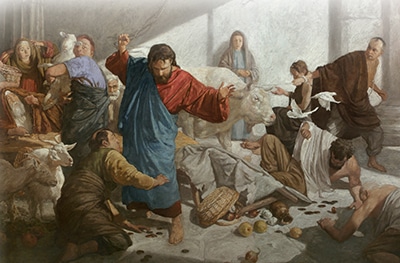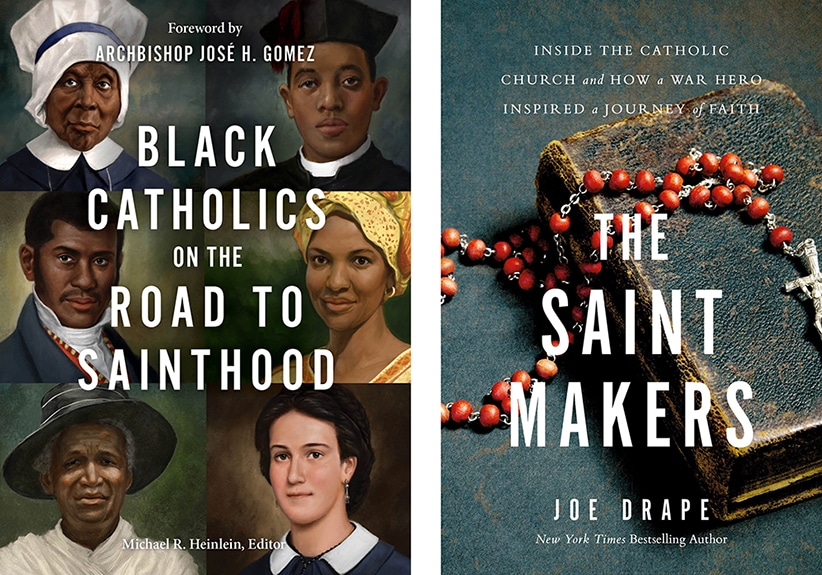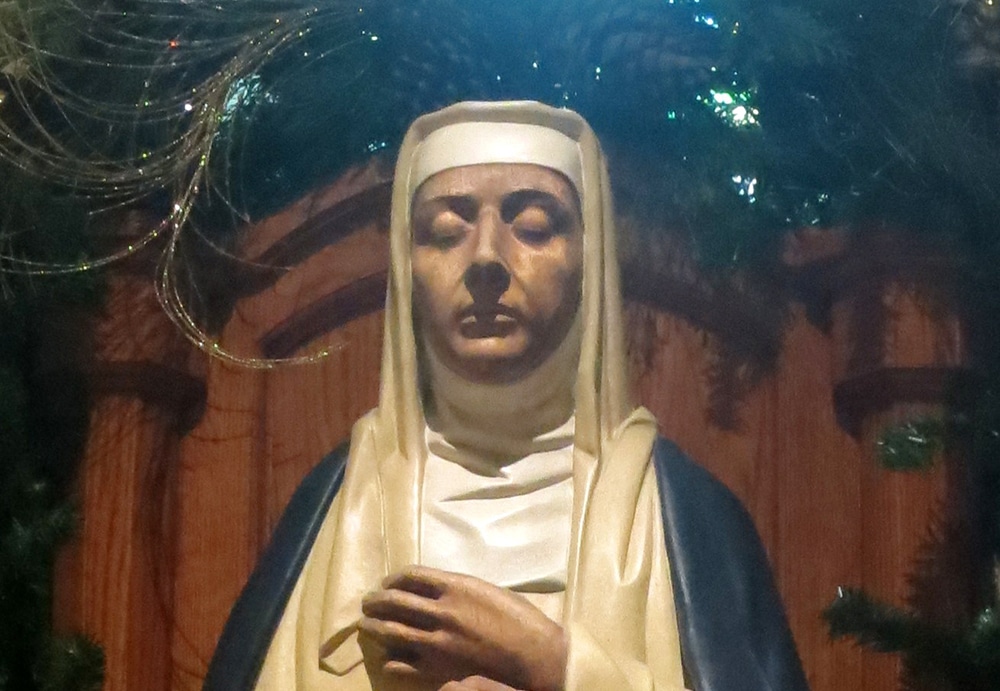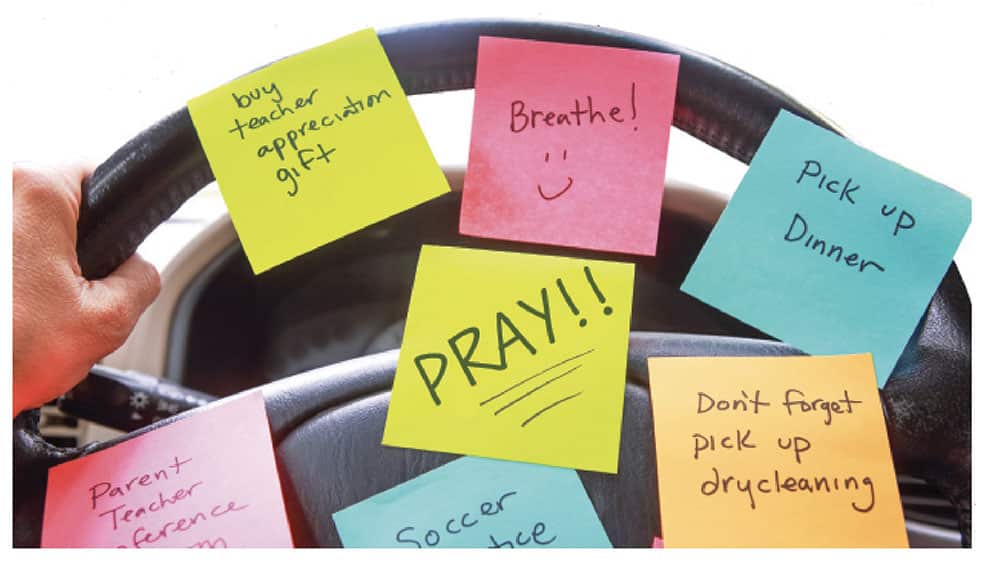Last October, I discovered the translation of the Bible that most Americans believe in. I call it the “Ought Bible,” because it emphasizes what one ought to do … and nothing else.
I discovered this Bible as I was out running on a drizzly, miserable evening, and I found this Bible lying in a puddle underneath a bridge. Now, Bibles don’t belong in puddles, so I proceeded to carry it with me as I ran three more miles.
When I got home and opened this Bible, I discovered that every time the word “shall” or “ought” appeared, it was circled. Every time. Thus I named it the “Ought Bible.” Somebody thought that the most important aspect of Christianity is doing God’s will, so to make sure he knew what that was, he circled every command, every suggestion, every “ought” — which, it turns out, is quite a lot.
And this version of the Bible, with a hyper focus on commands, is what many Christians in our world believe. What truly matters most is to do what we ought. So for us, if someone asked, “What does it mean to be Catholic?,” how would we respond? We’d probably give a bunch of oughts. You ought to go to Mass every Sunday. You ought to pray the Rosary. You ought to invite the priest over for dinner. All the basic stuff.
But this ignores what is the central most important aspect of Christianity: not the doing, but the being. The being in a personal relationship with God. Before we are called to do anything, we are called to be still and let God love us.
Love, not rules
The Law that God gives us didn’t just happen in a vacuum. God didn’t just decide one day to give the Ten Commandments to Moses. It happened in a context, in a story of salvation, where the Israelites had been stuck in slavery for more than 500 years, and God interceded and redeemed them, freeing them from this miserable way of life. Then, and only then, once the Israelites knew that God loved them and had brought them freedom, that is when God laid the Ten Commandments upon them. This happened in the context of love.
When someone is in love, there are always rules to follow, always guidelines about how to protect the love. If you want the love to flourish, do these things and everything will be great. Husbands who love their wives have to follow all sorts of commandments to keep their marriage fruitful: Thou shalt not smooch other women; thou shalt take out the garbage on Tuesdays; thou shalt buy me Roses on my birthday. These commandments don’t make any sense outside of the relationship, but inside the relationship — inside the love — that is where everything fits into place.
But if we divorce the rules from the love, that is when we run into problems. How many people hate the Catholic Church because of the rules? Because when they see these rules, absent from love, they reject the Church? If we solely believe in the tenets of the “Ought Bible,” people ought to run away from us. We have missed the entire purpose of our faith: a life-changing relationship with Christ that begins not when we are perfect and have everything in our life in order, but begins now, as I am, when Christ takes me, loves me and restores that which was broken in me so I might have eternal life.
Focusing on the wrong thing

This is what Christ is doing in the cleansing of the Temple (cf. Mt 21:12-17). He is fixing the Temple, because the Israelites had forgotten why it existed. The moneychangers were in the Temple because it’s where God asked the people to offer a sacrifice, and it was awfully hard to travel hundreds of miles with a flock of sheep or oxen. So Jews would instead purchase the animal to be sacrificed at the Temple and then offer this animal to God. Good, that’s what God wants.
However, this aspect of exchanging money for animals had seemingly become the most important aspect of the Temple. So when Christ saw this misuse of the Temple, he saw the injustice and got mad. Anger isn’t a sin, it’s an emotion, so Christ used that anger not to cause more injustices but to correct what was wrong — namely, that what should have been a good aspect of worship became the focus of the entire Temple, when the focus ought to have been on worship of God.
The “Ought Bible” makes this same mistake, focusing only on commandments instead of God’s love. Doing so always leads to failure. The original owner of the “Ought Bible” probably did not accidentally leave his Bible under a puddle. He probably got so frustrated at this intense contrast between God’s perfection and our imperfection that he threw it out.
So we need to ask ourselves: What will we follow? Will we follow the “Ought Bible,” which leads to burnout, distrust and, ultimately, failure? Or will we follow Jesus Christ, who leads to infinite mercy, love and eternal life?
How we ought to share the Faith
Obligation as a means for evangelization is not working anymore in Catholicism. The “Ought Bible” is not convincing people to show up anymore, not convincing people to become or remain Catholic. So we need to ponder how God wants us to spread the Faith.
So how does one spread the faith to one’s family? Is it through giving your kids a bunch of oughts and nothing more? That hasn’t been working, and it won’t work. Once they are out of the house and they feel that tension between late night Saturday partying and Sunday morning worship, those oughts aren’t going to be very convincing.
If we wish to pass down our faith to our kids, the faith must be a source of warmth in the house, not the cause of drama. If our children’s only experience of the Faith is being dragged out of bed in the morning, that’s not a source of warmth, but conflict.
So what can we do to make the Faith a source of warmth in our families? We need to do things that create intentional family time. Families that get donuts after Mass, read the Gospel together, pray the Rosary together, invite the priest over for board games are the ones that spread the Faith to their kids. These are the things that will help the faith of our children to grow, because the impetus is not doing things just because we ought to, but doing them in the context of familial love.
As Christians, our faith takes place in this context of familial love. If we wish to reengage our world with the Faith, it will not be through spreading the tenets of the “Ought Bible,” but only through welcoming them into the warmth of our familial love. Once they encounter this overwhelming love, that is when everything fits into place.
Father Patrick Hake is the pastor of St. Peter’s Catholic Church in Fort Wayne, Indiana.







